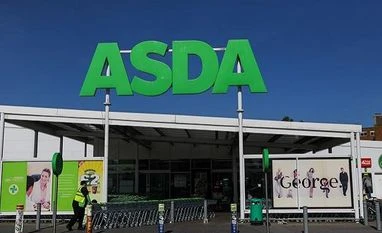Elusive, low profile, India-origin brothers Mohsin and Zuber Issa pulled off an acquisition bigger than the Tatas when they successfully bid for the British supermarket chain Asda.
Walmart Inc., the American retail giant that owns ASDA, confirmed on Friday, EG Group, controlled by the Issas, and TDR Capital, a private equity firm, have together agreed to buy Asda for £6.8 billion. Under the deal, the Issa brothers and TDR Capital will secure a majority stake in the company, with Walmart, which wholly possessed Asda after purchasing the firm for £7 billion in 1999 (when the Issas were working in their Gujarati parents’ petrol station on the outskirts of Manchester), retaining a minority shareholding. Asda has already been retailing in three of EG’s forecourts on a trial basis. This experiment will now expand to many more EG outlets.
The Tatas, in a major foray into the British market, had obtained Corus Steel, previously British Steel, for £4.3 billion in 2007 and Jaguar Land Rover for £1.15 billion.
Mohsin and Zuber Issa, whose parents migrated from India to the UK in the 1960s, said: “We are very proud to be investing in Asda, an iconic British business that we have admired for many years. Asda’s performance through the Covid-19 pandemic has demonstrated the fundamental strength and resilience of the business.”
The Blackburn-based brothers stressed they had hands-on experience. In a recent interview they mentioned: “We’ve been on the pumps, we’ve been stocking the shelves, cleaning the toilets.” In the UK, EG is landlord of the forecourts and sells fuel from BP and Shell under their branding. It has 396 filling stations, which equates to 5% of the market.
Judith McKenna, President and Chief Executive Officer of Walmart International said: “We are delighted to be able to announce this deal today, which we believe creates the right ownership structure for Asda, building on its 71 year-heritage, whilst bringing a new entrepreneurial flair, not only to Asda, but also to UK retailing.”
The entrepreneurs from the county of Lancashire built a small family business into an empire with almost 6,000 forecourts in 10 countries, 44,000 staff and €20bn annual revenues. Backed by TDR, which owns 50% of EG Group, they fended off competition from another private equity group Apollo.
Gary Lindsay at TDR Capital stated: “Asda is a strong and well-managed business with one of the leading brands in UK retail. We are proud to be investing alongside Mohsin and Zuber, who have built EG Group into a global convenience retailer and will now bring that experience to bear at Asda.”
Mohsin, 49, and Zuber, 48, took over their first petrol station in 2001 in Bury, also in Lancashire, and Euro Garages was formed. They signed up leading foodservice brands like Starbucks, Burger King, Greggs, Subway and KFC to run concessions in their larger forecourt formats, and in doing so, non-fuel convenience retail sales quickly outstripped sales of fuel. By 2015, following a series of deals with ExxonMobil and Shell, they emerged as significant players in independent forecourt retail.
With investment from TDR, the brothers expanded internationally in 2016. After acquisitions in Italy, the Netherlands, Germany and the United States in 2018, they scooped up convenience stores from Kroger and smaller portfolios like Minit Mart, Certified Oil, Fastrac and Cumberland Farms.
Mohsin and Zuber Issa earlier worked at their Gujarati parents’ petrol station near Manchester
The Issas have been on the lookout for businesses that have synergy with EG. Last summer, it failed to capitalise on the $17bn sale of Speedway, the US petrol station group. And the Australian forecourt operator Caltex reportedly rejected EG’s A$3.9bn offer in March.
Financial Times cited a person briefed on the matter as saying the brothers bid for Asda through a new vehicle. TDR will provide some money and debt. Earlier in the week, there was some scepticism as to whether the brothers have enough cash to fund an equity commitment estimated to be around £1bn. It quoted an analyst as stating: “My fear is that they will secure the funds by pledging some of their equity in EG. That changes the risk profile of EG debt.” Prior to picking up Asda, EG was valued at £10 billion, with a debt of approximately £8 billion. The analyst explained there was a big difference between a simple, capital-light and repeatable business model and the complexity of a supermarket chain with more than 500 stores. “Even Walmart didn’t do great with Asda — that’s a big red flag”, he said.
But Nadeem Ahmed, Indian owner of Global Tea, said: “Their combined sales will now exceed over $50B making them the largest Indian group outside India.”
The UK’s Competition and Markets Authority are likely to examine the transaction. Walmart’s earlier attempt to merge Asda with Sainsbury’s was blocked as it was seen as potentially decreasing competition in the supermarket sector.
Covid-19 has brought challenges for EG. Rating agency Moody’s downgraded the group’s outlook to negative, from stable, in March. In May, it said EG’s leverage would rise because of lower fuel volumes.
EG’s annual report filed last month showed fuel sales dropped in March but had steadily rebounded since May. In the year ending December 2019, the group made a pre-tax loss of €82m, down from €160m a year earlier, although operating profit rose from €220m to €253m. With Britons using cars to avoid public transport, fuel sales may not suffer that much. The brothers believe that after the pandemic people will increasingly opt for roadside cafés with good WiFi and coffee for meetings. Besides, food--Asda's core business--is an essential commodity.
Unlock 30+ premium stories daily hand-picked by our editors, across devices on browser and app.
Pick your 5 favourite companies, get a daily email with all news updates on them.
Full access to our intuitive epaper - clip, save, share articles from any device; newspaper archives from 2006.
Preferential invites to Business Standard events.
Curated newsletters on markets, personal finance, policy & politics, start-ups, technology, and more.
)